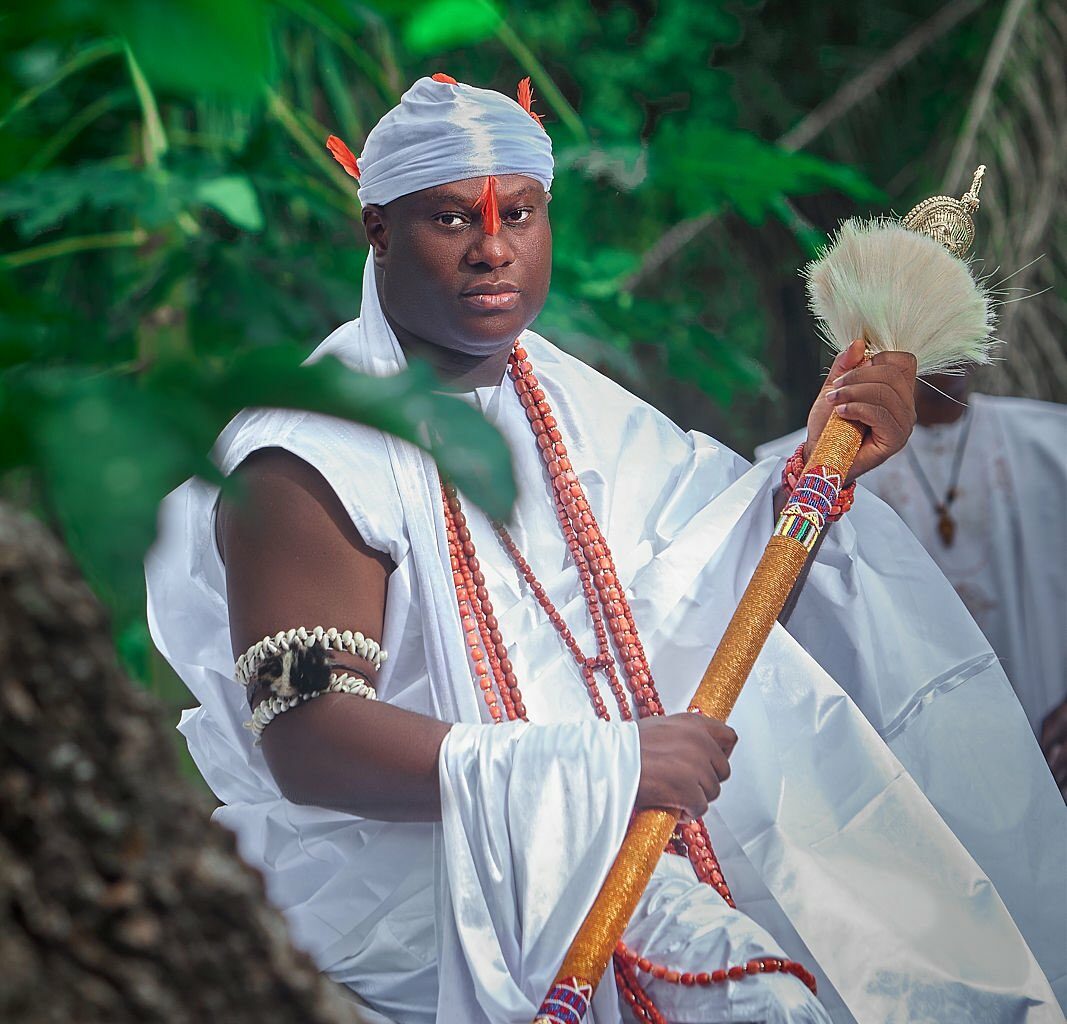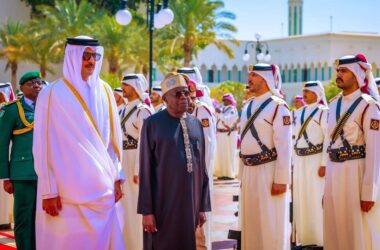One of the most important (albeit intangible) assets any individual or entity – whether corporate, geo-political, or even faith-based – can possess in these fast-changing times is the ability and readiness to adapt to the ever-evolving socio-cultural paradigms (as well as the new and potentially-disruptive technologies) that are increasingly defining the ways in which we work, live and interact with one another – while staying true to values that are timeless and unchanging.
Like the majestic baobab tree that towers over the African savannah – whose tips reach to the clouds and whose roots reach down to the very womb of Mother Earth, our traditional institutions, in their role as custodians of our cultural heritage and the visible representatives of our identities as demographic entities, transcend chronological (and perhaps even cosmic) time. Their ability to adapt to changing seasons without sacrificing their essence is what makes culture such a living, dynamic and organic phenomenon.
In this regard, the antiquity of Ife Kingdom in southwestern Nigeria, and the profundity and richness of its culture, is a universally-acknowledged reality. The physical aspects of Ife culture (as represented by the world-renowned bronze heads and other artifacts which occupy some of the most important public and private art collections around the world) has fascinated generations from around the world – and continues to do so to this day, thanks to the festivals and other traditional events which keep that culture alive with a combination of pomp and pageantry on the one hand, and solemn ceremony and age-old ritual on the other, as the people honour the pantheon of ancestors and deities that undergird Ife (and indeed Yoruba) cosmology, as well as the person and office of the Ooni, who is its human embodiment.
Speaking of embodiment, the character and personality of the current Ooni of Ife captures perfectly the aura of this dual essence – the ancient and the modern. Even as he sits on a throne which traces its provenance all the way to the legendary progenitor of the Yoruba race, Oduduwa himself, His Royal Majesty, Oba Enitan Adeyeye Ogunwusi, (Ọjájá II), Commander of the Order of the Federal Republic, is very much a product of the 20th and 21st centuries.
In an era in which the very notion of monarchy and hereditary rule is seen as an anachronism unsuitable to the democratic and egalitarian impulses of our industrial age with its emphasis on individual self-expression and a distrust of authority – the Ooni wears his prestige with a self-assured dignity that seems to insist on the continued relevance of the institution he represents, and the role it is uniquely equipped to play even in the face of the onslaught of modernity.
Oba Ogunwusi is a son of the Yoruba race, a scion of the ruling House of Giesi in Ile-Ife, and a descendant of the dynasty of Oranmiyan, son of Oduduwa. But that illustrious identity sits comfortably with an image which has earned him many admirers across and beyond his domain. In his carriage, manner, interactions and pronouncements, he has shown himself to be a modern Nigerian nationalist and a citizen of the world. In this regard, it might be said that Oba Ogunwusi is reprising a role played most excellently by his two immediate predecessors, Oba Adesoji Aderemi (Atobatele I) and Oba Okunade Sijuwade (Olubuse III). The former was a nationalist whose impact and influence went a long way to shape the fortunes of the young, emerging nation of Nigeria, while the latter took on roles that helped to forge a greater sense of unity and common destiny among the diverse ethnic nationalities in the country. These two men, it would be fair to say, clearly laid a good marker for their royal successor.
But perhaps a far more appropriate comparison, as regards the character and personality of Oba Enitan Ogunwusi, would be to the immediate past Oba of Lagos, His Royal Majesty, Adeyinka Oyekan (who reigned from 1965 until his death in 2003). In their assessment of his career and reign, many historians and commentators, Nigerian and foreign alike, have been unanimous in describing Oba Oyekan as a ‘philosopher-king’ – in line with a concept of rulership that was first proposed by the Greek philosopher Plato in his dialogues titled ‘The Republic’. The term ‘philosopher-king’ refers to a ruler who combines philosophical knowledge and a benevolent temperament with political skill and power – qualities which progressive and civilized societies since the dawn of time have sought, consciously or otherwise, in their leaders and in those who aspired to political or moral leadership.
One need not go too far to find where this philosopher-king, the Ooni of Ife, got this impulse from. Born on the 17th of October in 1974 in Ile-Ife (in what was then the Western State of Nigeria, and today’s Osun State). Prince Adeyeye Enitan Babatunde Ogunwusi (as he then was) was bred in the afore-mentioned House of Giesi, one of the four royal families that make up the House of Oranmiyan. His paternal grandfather was Prince Joseph Olagbaju Adewole Ogunwusi, whose own grandfather was Ọba Ọ̀ráyẹ̀gbà (also known as Ooni Orarigba) Ọjájá I, 44th Ooni of Ife who ruled from 1878 to 1880. Through Ojaja I, Enitan Ogunwusi is a direct descendant of Ooni Agbedegbede, who was a descendant of Ooni Giesi (the progenitor of the Giesi Royal House), and therefore a descendant of Ọọni Lajodogun. Lajodogun was a son of Ọọni Lajamisan (or Lajemisin), who was a grandson of Oranmiyan, son of Oduduwa, the legendary founder of both the Oyo and Benin Empires.
The fifth child in a family of seven born to Prince John Oluropo Ogunwusi and Princess Wuraola Ogunwusi, Enitan Ogunwusi’s birth was said to have been predicted years before he was conceived (hence his name Enitan, as given to him by his mother) His grandfather named him Adeyeye, which means ‘the crown befits the throne.’
The young Enitan Adeyeye began his elementary education at Subuola Memorial Nursery and Primary School in Ibadan, and later at the Ibadan District Council, in the Akobo suburb of the ancient city. He then proceeded to Loyola College, also in Ibadan, and then to St. Peters Secondary School, in his hometown of Ile-Ife, where he received his secondary school certificate (SSCE). He eventually graduated from The Polytechnic, Ibadan, with a certificate in Accountancy.
A member of the Institute of Chartered Accountants of Nigeria (ICAN), Ojaja II is also an associate accounting technician and a certified member of the Institute of Directors (IoD). A member of the Global Real Estate Institute, the Ooni holds a number of honorary doctorate degrees, most notably in Public Administration from the University of Nigeria, Nsukka, and another in Law from the Igbinedion University in Okada, Edo State. A passionate lover of education, the Ooni currently serves as Chancellor of the University of Nigeria, Nsukka. In October 2022, the Nigerian national honour of Commander of the Order of the Federal Republic (CFR) was conferred on him by then-President Muhammadu Buhari.
Prince Enitan Adeyeye Ogunwusi was selected as Ooni (from among a number of legitimate claimants to the ancient throne of Ile-Ife) on the 26th of October, 2015. Upon taking his oath of office and his ascension to the throne of his forebears on December 7, 2015, the then-41-year old, who has been described by those who know him best as a brilliant accountant and a skilled entrepreneur with a drive to overcome challenges, became the 51st Ooni of Ife and spiritual leader of the Yoruba people. His fifty predecessors on the throne include Oduduwa (the originator of the monarchy) as well as more recent Oonis such as Akinmoyero (who reigned from 1770 to 1800); Gbanlare (1800–1823); Gbegbaaje (1823–1835); Wunmonije (1835–1839); Adegunle Adewela (1839–1849); Degbinsokun (1849–1878); Orarigba (1878–1880); Derin Ologbenla (1880–1894); Adelekan Olubuse I (1894–1910); Adekola (1910-1910); Ademiluyi Ajagun (1910–1930); the afore-mentioned Adesoji Aderemi (1930–1980); and Alayeluwa Oba Okunade Sijuwade (1980-2015).
The 51st Ooni is married to a number of royal spouses (or Oloris, as they are called), with whom he has a number of children.
Since his ascension to the throne, the Ooni of Ife has served as an enthusiastic standard-bearer for the revitalisation of Yoruba culture and the promotion of a robust scholarship in the history of the Yoruba peoole, not just in Nigeria, but also in the neighbouring Republic of Benin – where a sizable part of the populace claims kinship and common ancestry with their Nigerian cousins, as well as across the Atlantic Ocean to countries like Brazil, Haiti and other parts of the Americas, where certain aspects of Yoruba culture and traditional religious practices have survived across the centuries of separation from the African motherland (albeit with a distinctive Latina flavour, in the case of Brazil). Without a robust knowledge of their history, the monarch has always contended, a people are only a short step away from extinction. “Without real history,” he has said, “we Africans will continue to depend on foreigners to tell our stories.”
The Ooni is also known to cherish a closer engagement between the Yoruba and the Igbo, Urhobo, Itsekiri and Edo nationalities in particular, not just within the context of the quest for national unity, but also in pursuit of a historical theory he has repeatedly expressed his belief in, namely, the ancestral kinship of these people, as can be seen from their various commonalities on so many levels. In asserting, for example, that the Igbo people migrated from Ile-Ife, the Ooni has challenged academia in Nigerian universities to properly document the respective histories of these two peoples.
In his eight years on the throne so far, Oba Ogunwusi has recorded a number of significant achievements – tangible and intangible alike. Shortly after his coronation, he, along with the now-deceased Alaafin of Oyo, His Majesty Oba Lamidi Adeyemi, initiated a new era in the history of the Yoruba States, an effort that also brought together the often-fractious royal thrones in Yorubaland in renewed solidarity and quelled the simmering tensions that had prevailed in the past amongst a number of them – based on a history of contending grievances and narratives of entitlement. Also an ardent advocate for the empowerment and emancipation of women and young people, Oba Ogunwusi has transformed Ile-Ife into a tourist destination of sorts with the beautification, redesign, and reconstruction of parts of the ancient city. A renowned philanthropist with an avowed commitment to the betterment of the human condition, Oba Ogunwusi has, over the years, demonstrated his support for the less-privileged and vulnerable in society through a number of channels, most notably the House of Oduduwa Foundation and, more recently, the Hopes Alive Initiative (under whose auspices he has given away many gifts, including showering a financial windfall on a 94-year old matriarch a few days ago, in the run-up to his birthday).
In the widely-acclaimed Hollywood movie, The Man in the Iron Mask (which was set in pre-revolutionary France during the reign of King Louis XIV, also known as the Sun King), the youthful and inexperienced Louis, sensing rebellion within his realm and keen to assert his authority, says to one of his lieutenants, Athos, “‘I may be a young King, but I’m King all the same. Never forget that.” To which Athos replies, “Just be a good King.”
As he turns 49, with a few years of royal experience under his belt, Oba Enitan Adeyeye Babatunde Ogunwusi, the 51st Ooni of Ife, intends to be just that: A Good King.
More to the point, he is a modern-day philosopher-king, one who is adapting his ancient throne and its age-long traditions and timeless values to the demands of a new age with a combination of profound reflection and effective action in equal measure.
Kaabiyesi o! Long live the King!






